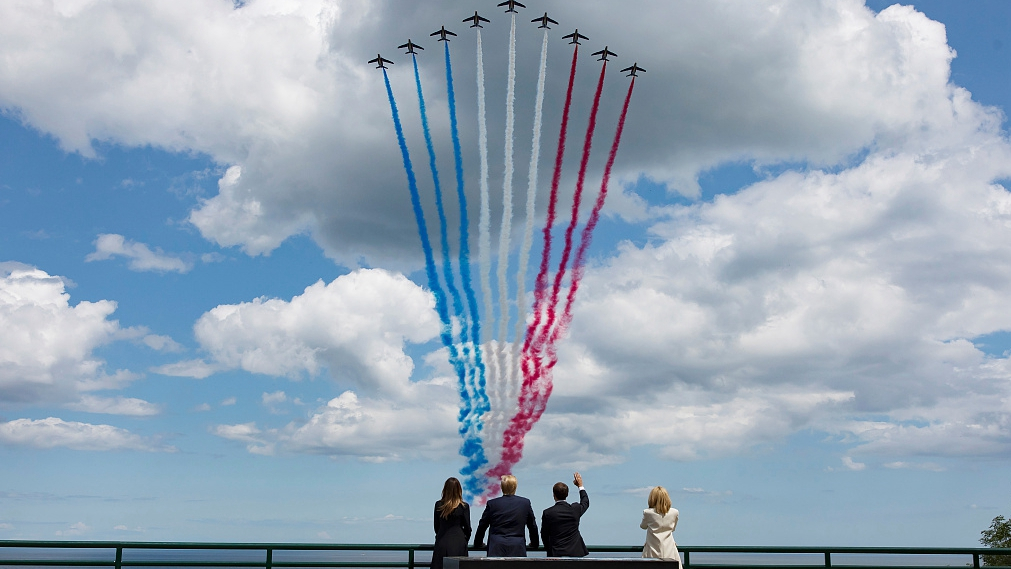Will the Normandy summit resolve the Russia-Ukraine conflict?


Editor's note: Cui Zheng is an associate professor at the Research Center for the Economies and Politics of Transitional Countries, Liaoning University. The article reflects the author's opinions, and not necessarily the views of CGTN.
Through the diplomatic efforts of France and Germany, the leaders of the Normandy Four countries (Germany, Russia, Ukraine and France) are scheduled to meet in Paris, France, on December 9, 2019, to resume negotiations to end the five-year conflict in eastern Ukraine. This is the first talk among the four countries since the Berlin summit in 2016, and it also marks the first meeting between Ukrainian President Volodymyr Zelensky and Russian President Vladimir Putin since the former took office.
The deadlock after the Minsk Protocol
In 2014, to resolve the Ukrainian crisis and promote Ukraine-Russia dialogues, Russia, Ukraine and the Organization for Security and Cooperation in Europe (OSCE) launched the Trilateral Contact Group on Ukraine and the "Normandy Format" Group as peaceful mechanisms to mitigate the conflict. With the conclusion of the "Minsk Protocol" as a "comprehensive" protocol on July 18, Russia and Ukraine suspended their military confrontation in Donbass. However, during the two weeks after signing the Minsk Agreement, the two parties had repeatedly violated it, and thereby, the conflict escalated again, while no progress was made in negotiations.
Since 2015, Russia, Ukraine, the OSCE and other related parties have carried out multiple rounds of negotiations to resolve the conflict in eastern Ukraine, and supervised the implementation of the agreement. But none of these proved efficient. As the confrontation between the US and Russia escalates, in particular, the abolition of the Intermediate-Range Nuclear Forces Treaty directly affects the strategic stability in Europe, and the turbulent situation in eastern Ukraine poses a threat to the security of Europe.
Possibility of resolving the Russia-Ukraine conflict
Despite the increased diplomatic momentum in recent months, big obstacles remain before a lasting resolution is reached. The US, even excluded from the Normandy summit, it remains a major participant in multilateral diplomacy with Ukraine.
As a matter of fact, what's behind the Russia-Ukraine conflict is the gambling between Russia and the US Although US President Donald Trump is caught in a political scandal with Ukraine, the domestic consensus on supporting Ukraine has not been questioned, because providing military and economic aid to Kiev and making efforts to resist Russia on Ukraine's territory is the US' fundamental diplomatic stance toward Ukraine.
Despite the US' strong backing for Ukraine, some observers believe that the resignation of US diplomat Kurt Volcker and the growing chaos in US politics may cause Ukrainian President Zelensky to accept a negotiated deal with Russia. This will undoubtedly make it easier for Russia to maintain its military presence and political control in the two separatist enclaves in eastern Ukraine.
Against the backdrop of the political game among great powers, the prospect for resolving the Russia-Ukraine conflict at the summit is gloomy. The upcoming Normandy summit is more likely to make progress in smaller matters, for example, the Russia-Ukraine negotiations on the cross-border gas transit agreement expiring by the end of December, the exchange of prisoners of war, the relaxation of temporary front-line operations, and the economic ties with the separatist enclaves, which will help ease tensions in Europe.


































